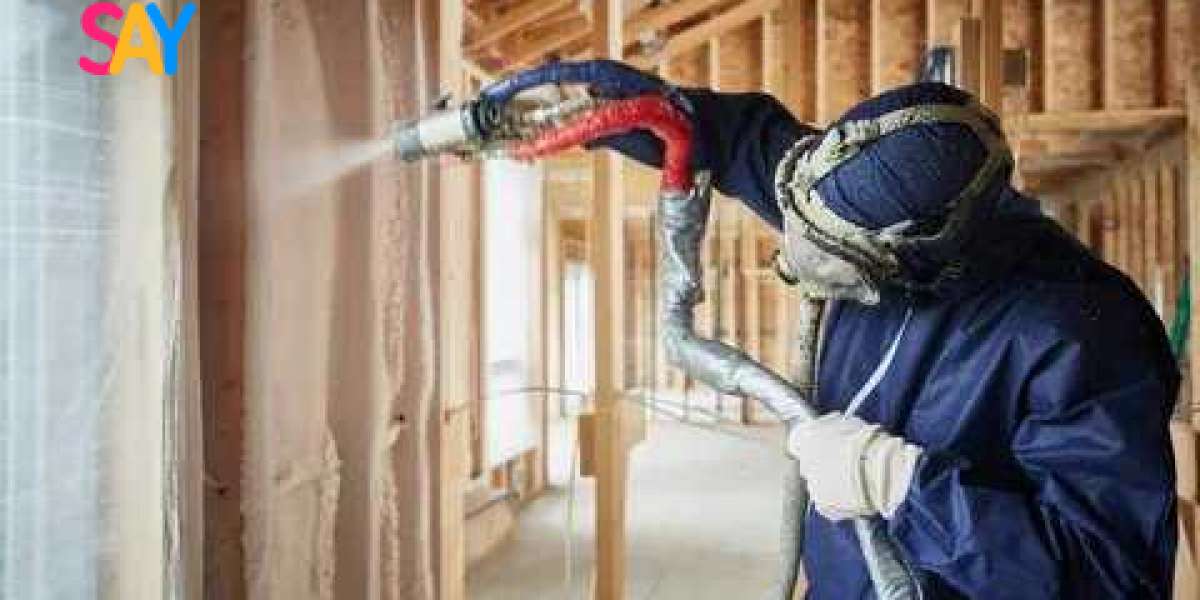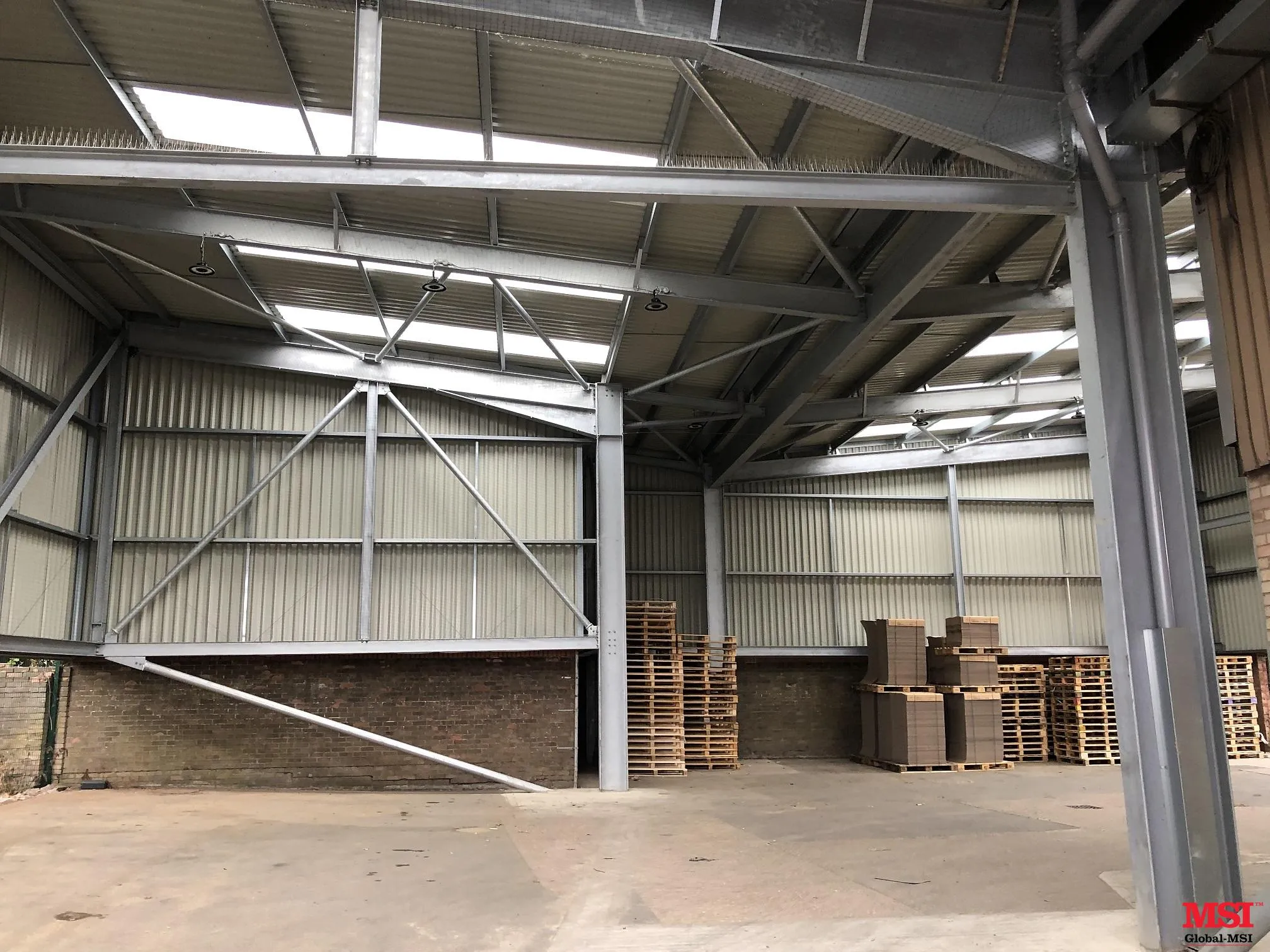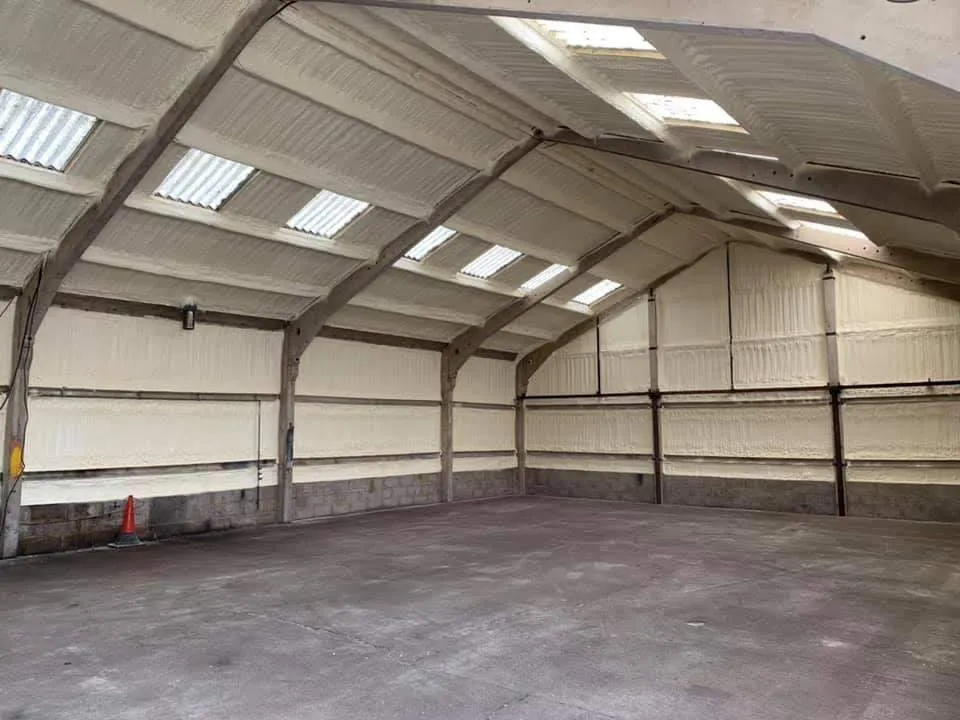Agricultural spray foam insulation creates a seamless thermal barrier that shields farm structures from temperature fluctuations, moisture infiltration, and air leakage—delivering 30-50% energy savings while extending building lifespan. The closed-cell variants provide exceptional weather resistance by blocking wind-driven rain, preventing condensation formation, and maintaining structural integrity during freeze-thaw cycles, while open-cell options excel in moderate climates with proper vapor barriers.
This comprehensive guide examines how agricultural spray foam insulation specifically addresses weather extremes in farming applications, providing technical specifications and practical implementation strategies for various agricultural buildings.
Types of Agricultural Spray Foam Insulation
Agricultural settings require specialized insulation approaches based on building function, moisture exposure, and temperature control needs.
Insulation Type | Weather Resistance | R-Value/Inch | Moisture Barrier | Wind Resistance | Temperature Range | Cost Range ($/sq ft) |
Closed-Cell Spray Foam | Excellent | 6.0-7.0 | Yes (0.1 perm) | Excellent | -60°F to 200°F | $1.75-$3.50 |
Open-Cell Spray Foam | Good | 3.5-3.7 | No (10+ perms) | Good | -20°F to 180°F | $1.25-$2.25 |
High-Density Closed-Cell | Superior | 7.0-7.5 | Yes (0.05 perm) | Superior | -100°F to 250°F | $2.50-$4.00 |
Hybrid Systems | Very Good | 5.0-6.5 | Varies | Very Good | -40°F to 200°F | $1.50-$3.00 |
Closed-Cell Foam for Extreme Weather Protection
Closed-cell spray foam creates a rigid, dense insulation layer with exceptional water resistance. Its closed-cell structure prevents moisture migration through the building envelope, making it ideal for:
- Livestock barns requiring strict humidity control
- Cold storage facilities with significant temperature differentials
- Equipment storage buildings exposed to driving rain and snow
- Structures in flood-prone areas
This formulation maintains its insulating properties even when exposed to minor moisture intrusion, unlike many traditional insulation materials.
Bonus Tip: Apply closed-cell foam at 2-inch thickness minimum in roof applications to achieve a secondary water-resistant barrier that can prevent leaks even if primary roofing becomes damaged during extreme weather events.
Open-Cell Foam for Moderate Climate Applications
Open-cell spray foam insulation services provide excellent thermal and acoustic insulation at a lower cost point. While less dense than closed-cell varieties, it still delivers:
- Superior air sealing capabilities
- Excellent sound dampening (reduces noise from heavy rain/hail)
- Good thermal performance in conditioned spaces
- Better vapor permeability for applications requiring walls to "breathe"
Performance Metrics Against Weather Extremes
Agricultural buildings face unique weather challenges requiring specific performance characteristics from insulation systems.
Weather Challenge | Required Performance | Closed-Cell Rating | Open-Cell Rating | Traditional Insulation Rating |
Wind-Driven Rain | Water Penetration Resistance | Excellent (Class 1) | Fair (Class 3) | Poor-Fair (Class 3-4) |
Freeze-Thaw Cycles | Dimensional Stability | 2% change | 4-5% change | 5-15% change |
High Wind Events | Structural Reinforcement | 250-400% increase | 75-150% increase | 0-25% increase |
Humidity Fluctuation | Moisture Management | 0.1 perm rating | 5-10 perm rating | Varies widely |
Temperature Extremes | Thermal Bridging Prevention | 90% effective | 70-85% effective | 30-60% effective |
UV Exposure | Degradation Resistance | Requires coating | Requires coating | Varies by material |
Market research indicates agricultural operations implementing spray foam insulation report 32% average reduction in heating/cooling costs and 27% decrease in moisture-related maintenance expenses compared to traditional insulation methods.
Application Areas for Maximum Weather Protection
Different agricultural structures require tailored insulation approaches to address specific weather vulnerabilities.
Livestock Housing
Temperature stability directly impacts animal health, feed conversion rates, and productivity. Spray foam insulation provides:
- Consistent indoor temperatures with minimal fluctuation
- Condensation control preventing respiratory issues
- Reduction of drafts that stress animals
- Sealing against rodent and insect entry points
For poultry houses, research demonstrates spray foam insulation maintains temperature variations within ±3°F compared to ±8-12°F with traditional insulation systems.
Crop Storage Facilities
Post-harvest crop quality depends heavily on storage conditions. Spray foam helps maintain ideal environments by:
- Eliminating condensation that promotes mold growth
- Maintaining consistent temperature zones
- Reducing energy costs for climate-controlled storage
- Preventing air infiltration that accelerates spoilage
Equipment and Supply Buildings
Farm equipment represents significant capital investment requiring protection. Spray foam provides:
- Condensation control preventing metal corrosion
- Temperature moderation protecting sensitive components
- Air sealing against dust and contaminants
- Water intrusion prevention during severe weather
Technical Installation Considerations
Proper installation significantly impacts weather resistance performance in agricultural applications.
Installation Factor | Specification | Impact on Weather Resistance | Best Practice |
Minimum Thickness | 1"-3" (varies by application) | Directly proportional to R-value and moisture resistance | 2" minimum for closed-cell in exposed applications |
Surface Preparation | Clean, dry, 40°F-120°F | Affects adhesion and long-term durability | Power wash and allow 24-48 hours drying time |
Coverage Pattern | Consistent thickness | Prevents thermal weak points | Use depth gauges during application |
Cure Time | 24-72 hours | Full expansion and cure required for maximum performance | Avoid heavy moisture exposure during cure |
UV Protection | Required for exposed applications | Prevents degradation from sunlight | Apply acrylic or elastomeric coating |
Expansion Space | 1/4"-1/2" allowance | Accommodates normal building movement | Use backer rod in expansion joints before applying foam |
Bonus Tip: When insulating metal agricultural buildings, apply foam during morning hours when the metal substrate is in its contracted state to prevent adhesion issues caused by thermal expansion.
Things to Consider Before Making a Decision
Climate-Specific Requirements
Your local climate dictates the optimal insulation approach:
- Humid regions benefit most from closed-cell foam's moisture resistance
- Areas with extreme temperature swings require higher R-values
- Regions with high wind events need the structural reinforcement closed-cell foam provides
- Flood-prone locations require water-resistant insulation properties
Building Usage Factors
Different agricultural activities have unique insulation requirements:
- Livestock housing needs excellent air quality control and consistent temperatures
- Grain storage requires precise moisture management
- Equipment storage benefits from condensation prevention
- Processing areas need washable, sanitary surfaces
Code Compliance and Safety
Agricultural buildings must meet specific requirements:
- Fire-resistance ratings for various occupancy types
- Thermal barrier requirements over foam insulation
- Ventilation requirements for buildings with animals
- Special provisions for high-moisture environments
Return on Investment Timeline
The financial equation varies by application:
- Energy-intensive operations see faster payback periods (typically 2-5 years)
- Buildings with moisture and mold issues benefit from immediate maintenance savings
- Extended building lifespan provides long-term return beyond energy savings
- Improved operational efficiency creates ongoing productivity benefits
Agricultural Spray Foam FAQ
How does spray foam specifically protect against freeze-thaw cycles?
Spray foam creates a continuous thermal barrier that maintains consistent interior temperatures regardless of exterior fluctuations. The seamless application eliminates the gaps where condensation typically forms during temperature swings. For agricultural buildings, this prevents the moisture accumulation that leads to freeze-thaw damage in walls, foundations, and roofing systems.
Can spray foam insulation improve livestock productivity?
Yes. Research from agricultural extension services demonstrates that properly insulated livestock facilities maintain temperatures within the animals' thermal comfort zone, resulting in 8-12% improved feed conversion rates and reduced stress indicators. The elimination of drafts and cold spots prevents respiratory issues and supports consistent production levels year-round.
How long will agricultural spray foam insulation last in harsh farm environments?
Properly installed spray foam maintains its performance characteristics for 25+ years in agricultural applications. The material does not settle, compress, or degrade when exposed to normal temperature fluctuations. Closed-cell formulations resist moisture absorption that typically degrades traditional insulation materials in high-humidity farm environments.
Is spray foam safe for use in food storage areas?
Yes, cured spray foam is inert and non-toxic, making it suitable for grain bins, produce storage, and other food-related applications. Once fully cured (typically 24-72 hours after installation), the material does not off-gas or contribute particulates to the storage environment. Many formulations meet FDA requirements for incidental food contact surfaces when properly coated.
How does spray foam compare to traditional agricultural insulation methods during extreme weather events?
During high-wind events, buildings with spray foam insulation experience 30-60% less air infiltration compared to traditionally insulated structures. The adhesive nature of spray foam adds structural reinforcement, reducing wall racking during storms. The seamless water resistance prevents moisture intrusion during heavy precipitation, substantially reducing post-storm repair requirements.
Protect Your Agricultural Investment
Agricultural spray foam insulation delivers superior weather protection through its unique combination of air sealing, moisture control, and thermal performance. The seamless application eliminates the vulnerable points where traditional insulation typically fails during weather extremes.
For maximum weather protection, prioritize proper installation by certified applicators familiar with agricultural applications. Ensure specifications match your specific buildings, climate challenges, and operational requirements rather than applying a one-size-fits-all approach.
Evaluate your unique needs based on local weather patterns, building construction, and agricultural activities to determine the optimal spray foam system for your property. The investment in proper insulation pays dividends through energy savings, structure protection, and operational efficiency improvements for years to come.
Reviewer:
Charlotte King reviewed this article based on her 7 years of spray foam experience, contributing thoughtful advice about building customer relationships and improving local visibility.






